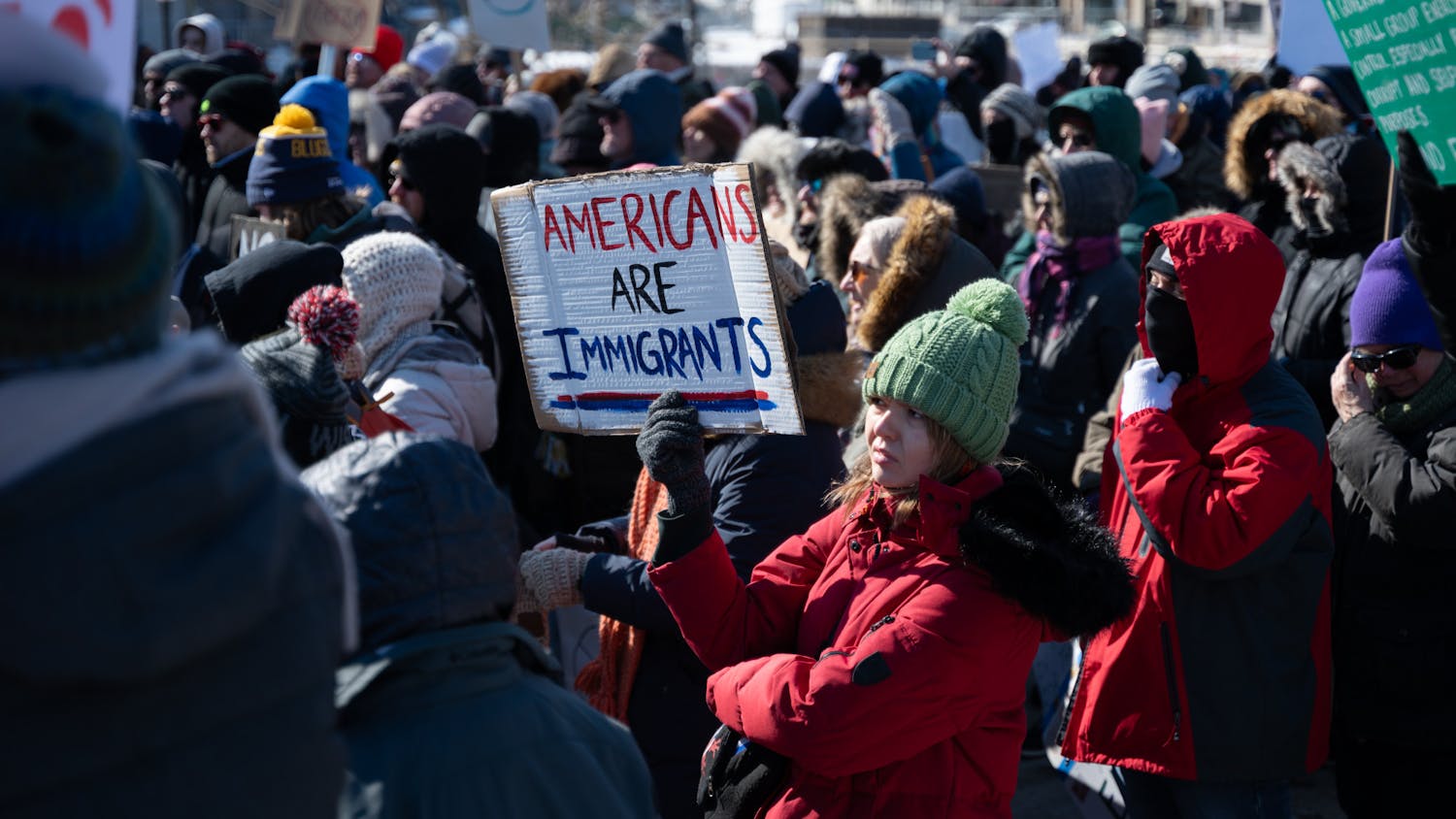A federal judge in Rhode Island issued a temporary restraining order Friday prohibiting President Donald Trump’s administration from implementing a freeze on federal grants and loans until the court rules on a motion for preliminary injunction, a win for Wisconsin and a coalition of 22 other states that filed a lawsuit challenging the funding freeze.
Friday’s indefinite order was the second block on Trump’s sweeping aid freeze, the first being a “brief administrative stay” announced Tuesday minutes before the freeze would’ve gone into effect.
U.S. District Chief Judge John J. McConnell Jr. called the president’s claims of executive authority “constitutionally flawed,” ordering Trump’s administration to not “pause, freeze, implement, block, cancel or terminate” federal funding in the 12-page temporary restraining order.
While Trump rescinded the freeze memo in an effort to get around the lawsuit hours before the initial hearing in the case on Wednesday, White House Press Secretary Karoline Leavitt said in a social media post the executive orders on federal funding “remain in full force and effect and will be rigorously implemented.”
The order comes just days after Gov. Tony Evers and Attorney General Josh Kaul announced Wisconsin was joining the lawsuit against the policy they said could have a devastating impact on the state budget.
Kaul said in a press release Friday that while the order makes it clear the Trump administration’s “sweeping and reckless” funding freeze is blocked for the time being, the case is still in the early stages of litigation.
“Thoughtlessly disrupting or dramatically cutting funding for public safety, educational programs, public health and many other essential services threatens to cause serious damage to our communities. The Trump administration must reverse course and follow the law,” Kaul said.
The lawsuit, filed by the coalition Tuesday, argued the Office of Management and Budget’s (OMB) policy violated the Constitution and federal law by creating new conditions on funding that was already awarded.
Evers said the federal funding freeze left Wisconsinites “alarmed and concerned” after few additional details were given when the memo was announced.
Wisconsin’s state government receives $28 billion in federal assistance, according to the state Legislature’s nonpartisan fiscal bureau. Roughly 61% of federal assistance goes to the Wisconsin Department of Health Services, the bulk of which is then spent on Medicaid programs. The rest is spent largely on services for low-income families, public school programs, the University of Wisconsin System and the Wisconsin Department of Transportation.
Across Wisconsin, federal grants and loans fund anything from early childhood education to food assistance programs in the state. In a time of uncertainty, State Superintendent Jill Underly said the Department of Public Instruction is “currently working to understand” how the looming freeze in federal funding would impact areas including special education, school nutrition, technology and programs serving low-income students.
"Our public schools have been underfunded by the state, and many rely on federal resources to fill the gap," Underly said. "Our children depend on us, and on our government, for access to education, essential services and food. While we seek clarity from federal authorities, we cannot afford to put our kids’ education and well-being at risk.”
Evers is set to release his 2025-27 budget request in full on Feb. 18. Depending on how Trump’s directive plays out, the governor’s office may need to rewrite their spending plan to fund areas impacted by a loss of federal funding.
Anna Kleiber is the state news editor for The Daily Cardinal. She previously served as the arts editor. Anna has written in-depth on elections, legislative maps and campus news. She will spend the summer as the 2025 Sharon Stark political reporting intern with the Milwaukee Journal Sentinel. Anna has previously interned with WisPolitics and Madison Magazine. Follow her on X at @annakleiber03.






